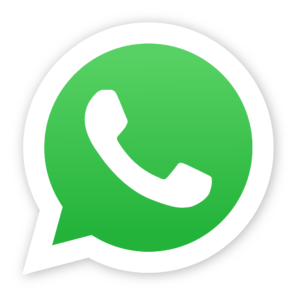- On April 25th, Twitter agreed to accept the 44 billion USD offered by billionaire Elon Musk to buy out the social media firm.
- This move comes following a long period of confusion during which Musk bought 9.1 percent shares of the company and secured a 50 billion USD loan to buy the firm.
- The decision is set to bring about many radical changes in the operation of the micro-blogging platform as Musk promises to introduce free speech and democracy.
On Thursday, April 14th, historically, Elon Musk the billionaire is known to have his hands in multiple cookie jars, added yet another feather to his cap as he moved to acquire one of the world’s leading microblogging social media platforms, Twitter. Musk, who offered approximately 54.20 US dollars for a share, managed to buy out the company for USD 44 billion as the firm accepted the deal on April 25th which is more or less equal to his initial offer. Upon completion of the transaction, Twitter will become a private company.
A saga of confusion and suspense
For a long time, experts and advisors were monitoring Musk’s financial decisions to see if indeed a takeover of Twitter was on the cards. However, the American billionaire standing true to his infamy let along a game will he or won’t he continue. According to trusted reports from Bloomberg, Twitter’s board was actually in the process of debating and considering Musk’s offer even though the official statement remained that the social media platform won’t be sold.
Over the weekend, according to a report by the New York Times, the company sent out a team of eleven members to negotiate with Musk with said discussions continuing into Monday. Twitter reported its earnings on Thursday to debate its claim on Musk’s bid and the decision was hence finalized according to a special article by The Wall Street Journal.
How did it all begin?
It all began as a not-so-ordinary story on Wall Street as one of the most powerful and the richest person on Earth, Elon Musk announced his purchase of 9.1 percent of Twitter stocks in early April. This small and trivial appearing percentage ended up having a dual effect, it made Mr. Musk the largest shareholder of the enterprise and sent stock prices for the company to soaring new heights.
Experts wondered what could indeed be the billionaire’s agenda behind it all as it all unveiled slowly and surely before them. In his infamous ways, Musk set off to improve twitter in his own way, by asking for advice on a Twitter poll itself. While this might not be as much of a shocker as his previous usage of a Twitter poll to make a major stock decision, it did alarm the important people. The company immediately offered the man a seat on the board of directors and he said yes. But, maybe when the associated clause restricting him to attain a maximum of 15 percent of the stock being a board member came to light, Musk declined. This move was immediately followed by Musk updating his filing with the Securities and Exchange Commission(SEC). Hence it was clear that he wouldn’t be restricted to being a passive player in Twitter’s future and was indeed here to attempt something even more impactful.
The whole episode unfolds
Initially, the experts believed that indeed Musk was just up to his infamous ways and that he was not actually on the path to introducing a hostile takeover of Twitter. And then, came down the hammer.
Musk proclaimed his desire and ultimatum to buy the company out by offering a “fair” premium of 43 billion USD which he considered to be worth more than the market value of the firm which was around 37 billion USD, hence a 38 percent premium over the original stock price. He exclaimed his desire to change the social media platform’s narrative on Twitter itself as he described the app as a “de facto town square”. He claims Twitter must go private as an enterprise and must include additional features such as an edit feature and most importantly, an open-source algorithm that allows for less moderation while also opening the scope for removing potentially offensive content.
The surprising factor is experts believe that Musk may not have the financing lined up to buy out Twitter until recently. He was working with the renowned Morgan Stanley to attain the same but was also open in his proposition to withdraw his bid in case Twitter superiors agreed to take his changes into account. Turns out in his new filing with the Securities and Exchange Commission(SEC) Musk did go out and laid out his plans for securing a 46.5 billion USD worth of loans to finance the buyout offer. The funding was provided through two debt commitment letters from Morgan Stanley Senior Funding, which offered 25.5 billion USD each, and the remaining 21 billion USD was covered by Musk himself.
The implications
Ever since the news regarding Musk’s acceptance came to the public eye, things have been difficult for the employees at Twitter. Employees were asked “to strap in for a long ride” according to anonymous reports and they were naturally frustrated with the lack of a more detailed explanation. The workers continue to be haunted by the possibility of layoffs and the future of the beloved social media platform.
Another avenue, which may turn up as a rude awakening for the billionaire Musk himself is what lies in store after the privatization of twitter. Hours after announcing his bid to takeover twitter, Musk was on stage in Vancouver for an interview with Ted- talk founder, Chris Anderson. During this conversation, Musk spoke about his obsession with the truth and his need to reinstill the concept of free speech in society. He says his Securities and Exchange Commission(SEC) filing itself echoes his views on the needs of democracy. Experts however do not share Musk’s ideas. In the sense they believe, as proved by Musk’s infamous antics on Twitter prior, that his ideas of “free speech” can be quite “shaky” and might smell trouble in his own hands at the helm of the social media platform.
Twitter’s initial response
Behind the scenes, Twitter board members struggled to plot their responses. They naturally assumed that the company’s bylaws, which were widely described in the media as “poison” pills, would make it difficult for Musk to take full control. The poison pill in fact was the company’s “shareholder’s right’s plan”. This plan allows a different stakeholder for the company the right to purchase more stock in case Musk or another buyer attempts to seize control. Hence, it’s evident the superiors at Twitter fought a battle to avoid Elon Musk’s takeover and subsequently, lost.
Ex- CEO of the company Jack Dorsey called Musk’s bid a singular solution for Twitter by dropping a series of tweets. He exclaimed that although in its true spirit, Twitter isn’t meant to be owned or run by a single person, he does believe in Musk’s propaganda of introducing the microblogging site to the light it deserves. He says it’s the right direction for the website as it will allow the platform to be maximally trusted and be broadly inclusive.



